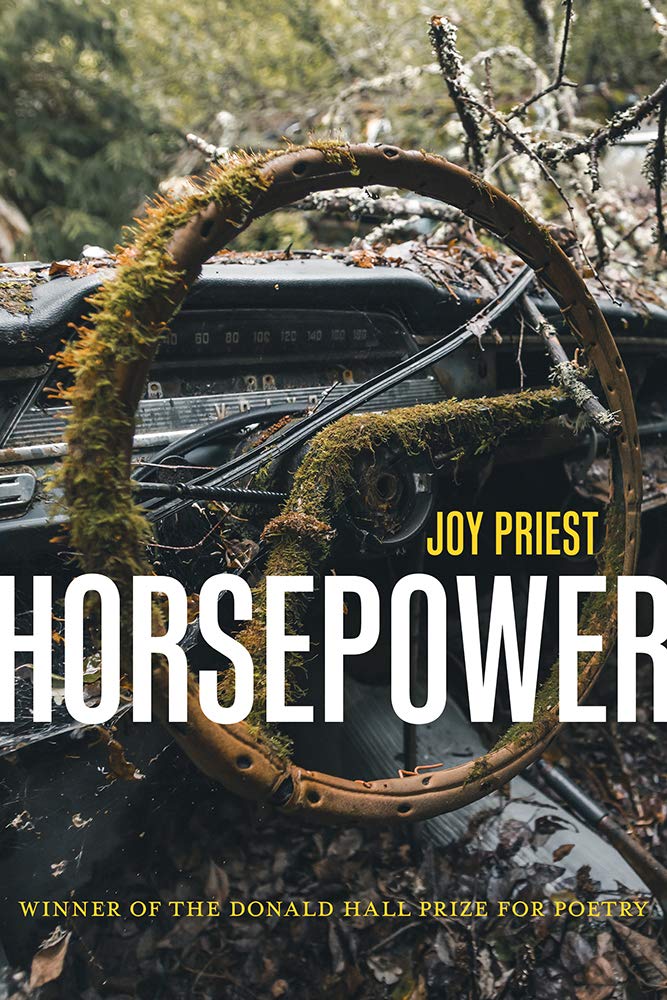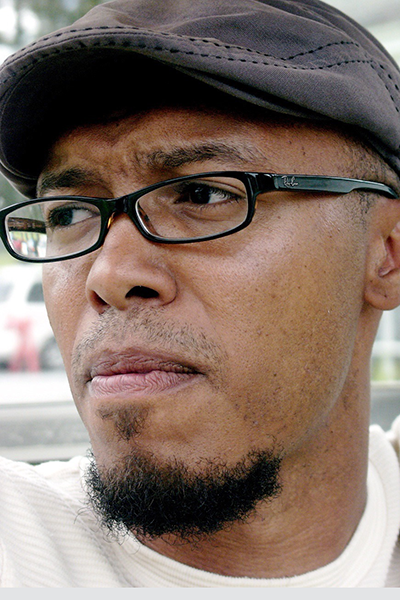I could hear Joy Priest’s debut collection, Horsepower, approaching like one of those bass-heavy, turtle-waxed ’64 Chevy Impalas that prowled my neighborhood in the mid-1980s, Zapp or Shirley Murdock or Parliament Funkadelic thumping through a detachable cassette deck. Priest’s poetic voice has metal, or I should say it’s metal-flaked because the reflections here are both intimate and otherworldly. The sounds sparkle. But when a poet’s first romance is a 1988 Cutlass Supreme Classic, she grows less concerned with fuel economy and would never consider “polish” a pejorative term. Her poetic line stretches out like a horizon barely visible over the steering wheel. Of course, if you’ve never burned a tank of gas, cross-hatching city streets on a late spring Sunday afternoon, braiding the voices of Al Green or Smokey Robinson through the ribbons of heat rising from the asphalt, this book is an invitation to joyride.
When I think about place and memory, I attach a soundtrack. Certain songs can resurrect the dead and lost buildings become unburned. Priest feels like kin. She understands what it means to make an image sing, and reading these poems, I feel that I’m almost closing my eyes, leaning closer to the page, listening to the landscape. Kentucky is neither Northern nor Southern, it’s nowhere and everywhere, as if historically Appalachia is like living on the razor’s edge, as if one is literally straddling the color line. Priest’s Louisville is both rural and urban, full of shadows and shot through with light. Note the physicality of these poems, how one immediately considers the body to process strength and fragility, how the senses stage acts of transcendence and betrayal. As in the closing lines of the elegy, “Dear Aunt Louise, Muh”:
Before I left that morning, I plucked a chin hair, sprouted
overnight. Felt
The heel
Of your palm hit my shoulder
Like a tambourine.
Navigating these line breaks is like turning corners at different speeds. As readers, our understanding of gravity fluctuates. We adjust our center. Riding shotgun, we feel jerked or jostled until we learn to trust who’s driving. And if we are not speeding along with the speaker, we are dared to witness a spectacle: “from a sidewalk-/ turned-sideline on West Broadway,/ I catch my beloved,/…/ leading a cortege of Chevelles through the chaos/ of revelers.” This understanding of pageantry extends from the cultural history of the Kentucky Derby, but Priest resists turning Black bodies into show ponies. Rather, Churchill Downs is a backdrop, casting shadows as dark as illegally tinted windows.




